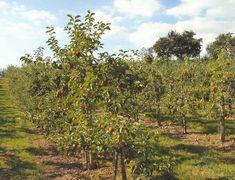
Irish farmers have adopted name-and-shame tactics in their fight against predatory pricing by the multiples, particularly of fresh produce.
As UK suppliers awaited the latest offering from their own Competition Commission, their counterparts across the Irish Sea took matters firmly into their own hands.
In national newspaper advertisements, the Irish Farmers’ Association (IFA) has singled out the main retail groups - Tesco, Dunnes Stores, SuperValu, Superquinn, Lidl and Aldi - as “the culprits”. Under the headline, “Damaging food discounting”, the advert warns: “The IFA’s campaign for honest food pricing will name and shame aggressive discounting by supermarkets.”
The UK grower base has, as yet, been unable or unwilling to make public protestations about its treatment, but the Irish campaign singles out half-price Bramley cooking apples on offer in Tesco and half-price onions in Dunnes, and advises consumers: “Don’t be fooled. Farmers can’t produce two for the price of one. Food cannot be produced as a loss leader for predatory pricing campaigns.” It adds that “while supermarkets keep their margins, discounts come straight out of the farmer’s pocket”.
In a further intensification of the campaign, farmers took their fight onto the streets, staging a protest outside a Dublin Tesco store over “the disastrously low prices” potato growers are being paid by multiples. Speaking at the protest, IFA president Padraig Walshe, whose recent hard-hitting criticism of supermarket pricing policies signalled the start of the campaign, claimed potato growers were being squeezed out of business by getting as little as 20 per cent of the retail price.
“All the main supermarket groups are charging €1.59 (£1.18) a kilo for loose potatoes,” he said, “while growers get as little as 30 cents a kilo. There is no processing involved with potatoes, so why is there such a price gap? With up to 80 per cent of the consumer price going to supermarkets and packers, it is clear that growers are not being paid anywhere near a fair price.”
The supermarkets, he added, have “a stranglehold over potato, vegetable and fruit growers, to such an extent that there is a real fear among producers that they could be de-listed should they have the temerity to seek a price rise”.
The result is that 500 growers have gone out of business in the past five years, because they could not survive on the prices being paid.
However, Retail Ireland (RI), representing the multiples, continues to claim that the high cost of doing business in Ireland means retail prices have little bearing on what the grower gets. The spokesman for RI also denied that predatory pricing exists, and said that if the IFA had evidence to support its accusation, it should give it to the Irish Competition Authority.



